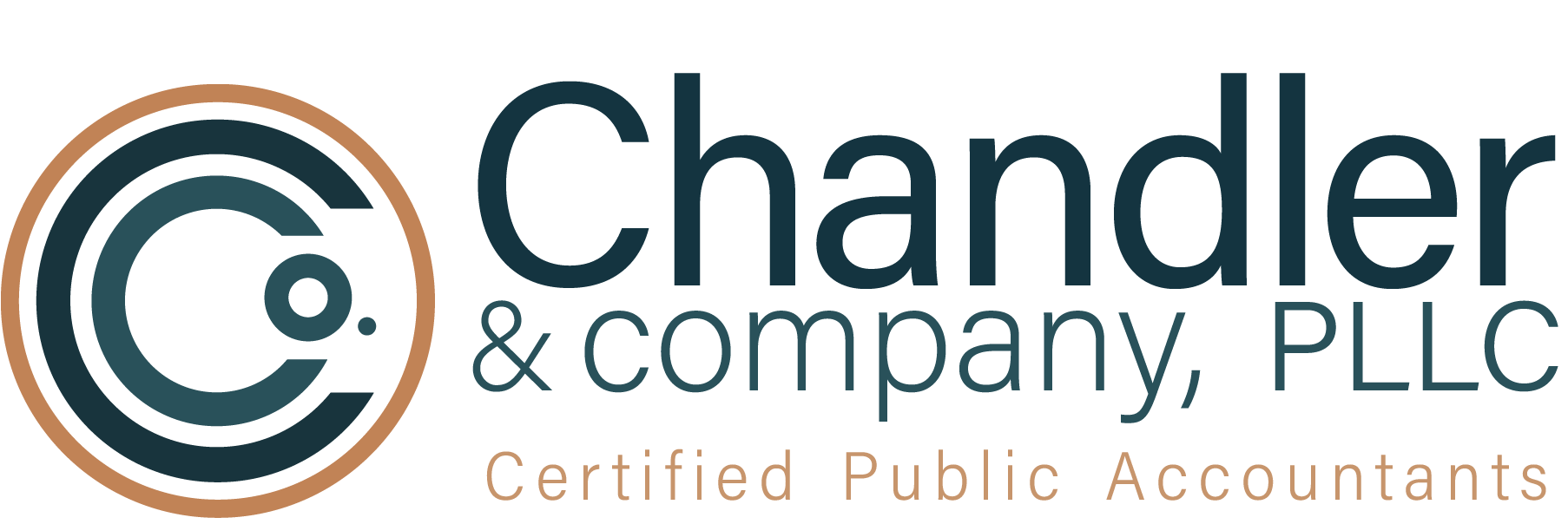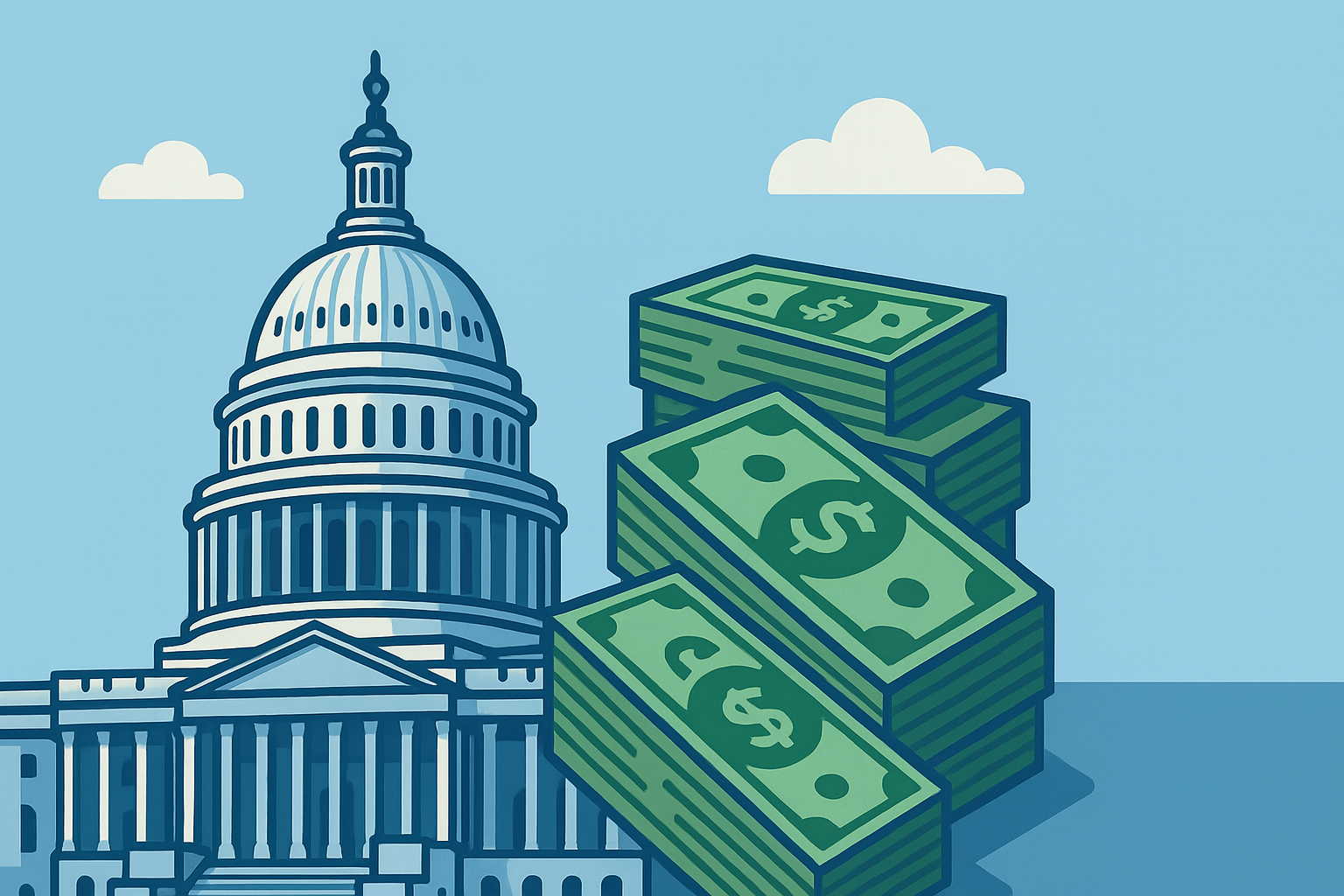Dear Client:
On July 4, 2025, President Trump signed into law the One Big, Beautiful Bill Act (OBBBA). OBBBA includes the largest tax overhaul since the Tax Cuts and Jobs Act of 2017 (TCJA), and it will affect almost every individual and business in the United States. The provisions in the new law go into effect on various dates, but most of the key ones affecting individuals apply to the current tax year. We are writing to give you a brief rundown of what’s in the new law and how it might affect you.
Overview of OBBBA Tax Changes Affecting Individuals
Tax Rates and Brackets. OBBBA makes permanent the current tax rates, which had been set to revert to higher rates at the end of 2025. Tax brackets will continue to be indexed for inflation. For 2025, the top rate (37 percent) kicks in at $751,600 of taxable income for joint filers, $375,800 for married taxpayers filing separately, and $626,350 for all other individual taxpayers.
Personal Exemptions and Standard Deduction. OBBBA increases the standard deduction for the 2025 year to $15,750 for single filers, $23,625 for heads of household, and $31,500 for married filing jointly. These amounts will be indexed for inflation in future years.
Deduction for State and Local Taxes. For taxpayers who itemize, TCJA capped the deduction for state and local taxes at $10,000. OBBBA provides relief by increasing the cap to $40,000 for 2025. The amount is increased to $40,400 for 2026 and then indexed for inflation annually before reverting to the current $10,000 limit in 2030. The enhanced cap is phased out for taxpayers with modified adjusted gross income over $500,000.
New Deduction for Tip Income. OBBBA creates a new deduction of up to $25,000 for qualified tips received by an individual in an occupation which customarily and regularly receives tips during a given tax year. The deduction is allowed for both employees and independent contractors. The deduction begins to phase out when the taxpayer’s modified adjusted gross income exceeds $150,000 ($300,000 in the case of a joint return). The deduction, which is allowed for the 2025-2028 tax years, is available regardless of whether you itemize or take the standard deduction.
New Deduction for Overtime Pay. OBBBA creates a new deduction for up to $12,500 ($25,000 in the case of a joint return) for “qualified overtime compensation” (defined as overtime compensation paid to an individual under Section 7 of the Fair Labor Standards Act). The deduction begins to phase out when the taxpayer’s modified adjusted gross income exceeds $150,000 ($300,000 in the case of a joint return). The deduction, which is allowed for the 2025-2028 tax years, is available regardless of whether you itemize or take the standard deduction.
New Senior Deduction. OBBBA adds a deduction for all individuals who have reached age 65 before the end of the tax year. The deduction amount is $6,000 per individual. The senior deduction begins to phase out when the taxpayer’s modified adjusted gross income exceeds $75,000 ($150,000 in the case of a joint return). The deduction, which is allowed for the 2025-2028 tax years, is available regardless of whether you itemize or take the standard deduction.
New Deduction for Car Loan Interest. OBBBA creates a new deduction of up to $10,000 for interest paid on debt incurred after December 31, 2024 for the purchase of a qualifying new vehicle assembled in the U.S. The deduction is allowed for tax years 2025 through 2028 and begins to phase out when the taxpayer’s modified adjusted gross income exceeds $100,000 ($200,000 in the case of a joint return). The deduction is available regardless of whether you itemize or take the standard deduction.
Trump Accounts. OBBBA creates Trump accounts, a new type of tax-advantaged savings account administered by banks and other financial institutions. Starting in 2026, parents of any child under age 18 may open a Trump account for their child. Aggregate contributions are limited to $5,000 annually, but the limit does not apply to contributions from tax-exempt entities such as private foundations. Beginning at age 18, account holders may begin accessing funds for a limited set of purposes, including higher education. Under a pilot program, for U.S. citizens born between January 1, 2024, and December 31, 2028, the federal government will contribute $1,000 per child into every eligible account.
Enhancements to 529 Plans. Beginning in 2026, OBBBA increases the annual limit on distributions from 529 savings plans from $10,000 to $20,000. It also allows distributions to be used for additional educational expenses in connection with enrollment or attendance at an elementary or secondary public, private, or religious school, including: curriculum and curricular materials; books or other instructional materials; online educational materials; tutoring or educational classes outside the home; certain testing fees; fees for dual enrollment in an institution of higher education; and certain educational therapies for students with disabilities.
Charitable Contribution Deduction. Beginning in 2026, OBBBA provides a charitable contribution deduction for non-itemizers of up to $1,000 in cash contributions for single filers ($2,000 for married filing jointly). For individuals who elect to itemize, OBBBA imposes a new 0.5-percent adjusted gross income floor on charitable contributions (i.e., it reduces any deduction by 0.5-percent of AGI).
Child Tax Credit. OBBBA permanently increases the child tax credit to $2,200 per child beginning in 2025 and indexes it for inflation.
Adoption Credit. OBBBA makes the adoption tax credit partially refundable up to $5,000 (indexed for inflation) beginning in 2025.
Deduction for Mortgage Insurance Premiums. Beginning in 2026, OBBBA permanently restores the deduction for mortgage insurance premiums (previously available from 2018 through 2021) by treating such premiums as interest on acquisition indebtedness. As before, the deduction is phased out for taxpayers with adjusted gross income above $100,000 ($50,000 for married filing separately).
New Limit on Gambling Losses. Under current law, deductions for gambling losses are limited to gambling winnings. Beginning in 2026, OBBBA limits the deduction for gambling losses to 90 percent of the amount of such losses. Any deduction remains limited to the amount of gambling winnings.
Termination of Clean Energy Credits. OBBBA terminates the new clean vehicle credit and the previously-owned clean vehicle credit for vehicles acquired after September 30, 2025. It also terminates the energy efficient home improvement credit and residential clean energy credit at year’s end.
Overview of OBBBA Changes Affecting Businesses
Qualified Business Income Deduction. OBBBA permanently extends the qualified business income deduction (QBI) under Code Sec. 199A at the current 20 percent rate and increases the deduction limit phase-in range from $50,000 to $75,000 for non-joint returns and $100,000 to $150,000 for joint returns. In addition, OBBBA introduces a new, inflation-adjusted, minimum deduction of $400 for taxpayers who have at least $1,000 of QBI from one or more active trades or businesses in which the taxpayer materially participates.
Bonus Depreciation. OBBBA permanently extends the additional first-year depreciation deduction. The allowance is increased to 100 percent for property acquired and placed in service on or after January 19, 2025, as well as for specified plants planted or grafted on or after January 19, 2025.
Section 179 Expensing. OBBBA increases the maximum amount a taxpayer may expense under Code Sec. 179 to $2.5 million, reduced by the amount by which the cost of qualifying property exceeds $4 million. The $2.5 million and $4 million amounts are adjusted for inflation for tax years beginning after 2025. The change applies to property placed in service in tax years beginning after December 31, 2024.
Research or Experimental Expenses Deduction. OBBBA allows taxpayers to immediately deduct domestic research or experimental expenditures paid or incurred in tax years beginning after December 31, 2024. Additionally, small business taxpayers with average annual gross receipts of $31 million or less generally may apply this change retroactively to tax years beginning after December 31, 2021. Furthermore, all taxpayers that made domestic research or experimental expenditures after December 31, 2021, and before January 1, 2025, may elect to accelerate the remaining deductions for such expenditures over a one-year period or a two-year period.
Special Depreciation Allowance for Qualified Production Property. OBBBA allows taxpayers an additional first-year depreciation deduction equal to 100 percent of the adjusted basis of “qualified production property.” Qualified production property is essentially nonresidential real property in the United States (or any possession) used for manufacturing and placed in service after July 4, 2025 and before January 1, 2031.
Increased Threshold for Forms 1099-MISC and 1099-NEC. For payments made after December 31, 2025, OBBBA increases the threshold for reporting payments on Forms 1099-MISC and 1099-NEC for services performed by independent contractors from $600 to $2,000.
Repeal of Revision to De Minimis Rules for Form 1099-K. OBBBA modifies requirements for third-party settlement organizations to eliminate their reporting requirement for payees unless they have earned more than $20,000 on more than 200 separate transactions in an applicable tax period.
Capital Gains from the Sale of Certain Farmland Property. For taxyears beginning after July 4, 2025, OBBBA adds a new provision that allows capital gains from the sale or exchange of qualified farmland property to a qualified farmer (i.e., an individual who is actively engaged in farming) to be paid in four equal annual installments, beginning on the original due date of the tax return for the tax year in which the sale or exchange occurred.
Limit on Excess Business Losses of Noncorporate Taxpayers. OBBBA makes permanent the excess business loss limitation for noncorporate taxpayers under Code Sec. 461(l).
1 Percent Floor for Corporate Charitable Contributions. For tax years beginning after December 31, 2025, OBBBA allows a deduction for corporate charitable contributions only to the extent that the aggregate of corporate charitable contributions exceeds one percent of taxable income.
Expansion of Qualified Small Business Stock Gain Exclusion. OBBBA modifies the qualified small business stock (QSBS) gain exclusion by providing a tiered gain exclusion for QSBS acquired after July 4, 2025. The provision allows a 50 percent exclusion after three years, 75 percent after four years and 100 percent after five years.
Enhancement of Employer-Provided Child Tax Credit. OBBBA permanently increases the employer-provided childcare credit and creates a separate credit amount for qualified small businesses. Specifically, the provision increases the maximum credit from $150,000 to $500,000 ($600,000 for small businesses) and the percentage of qualified childcare expenses covered from 25 percent to 40 percent (50 percent for small businesses).
In addition to the items discussed above, OBBBA includes many other tax provisions affecting individuals and businesses that are beyond the scope of this letter.
Sincerely,
Chandler & Company, PLLC


Comments are closed